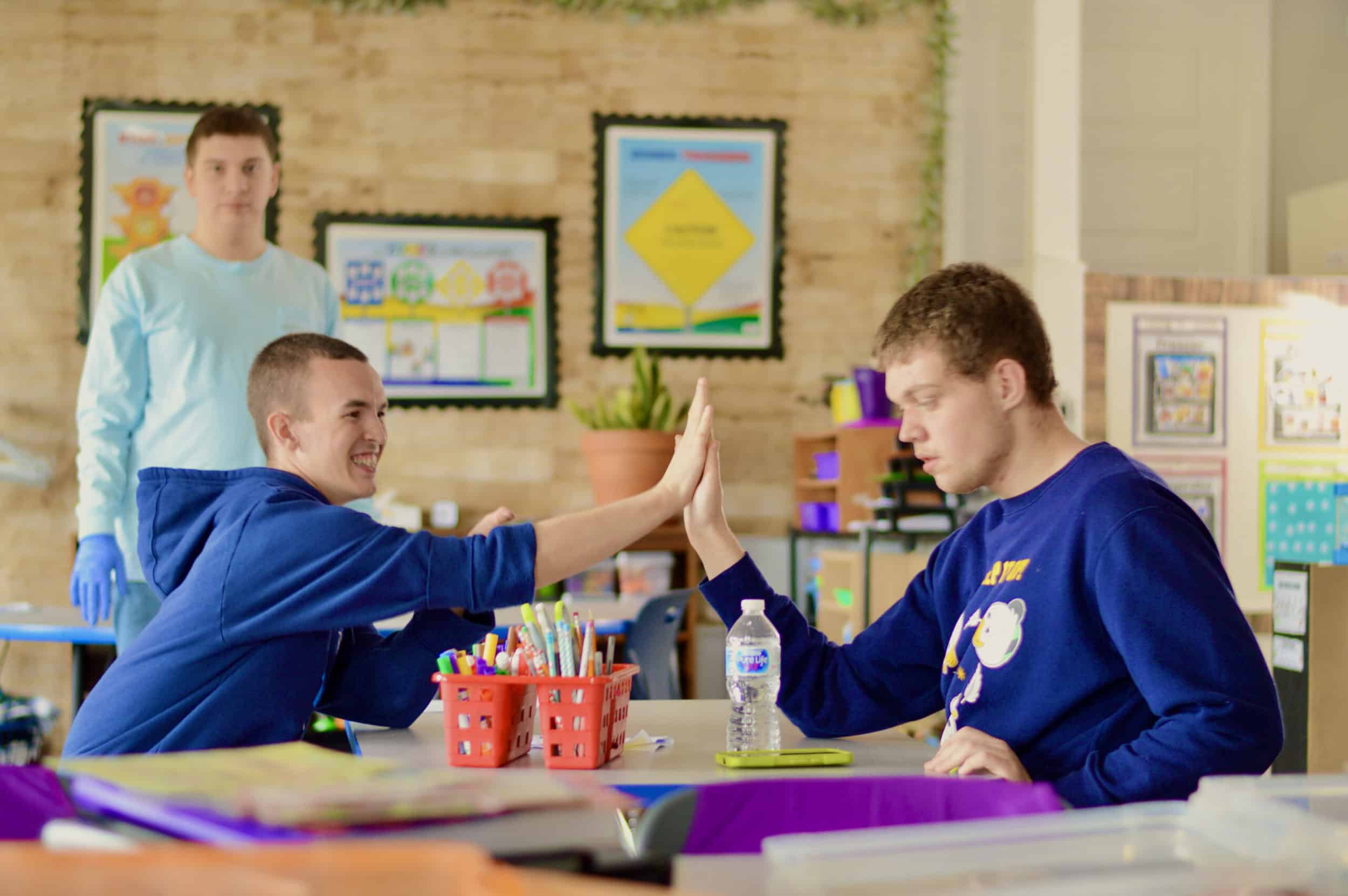Program Overview
Autism Career Training uses the Six Outcome Domains as a framework to establish baselines and set goals. The six domain system is derived from research reviewed by the Institute of Educational Sciences. This is an evidence review protocol for children with Autism Spectrum Disorder, and the research denotes which interventions will be effective in improving the six domain areas.
These interventions are designed to improve the six areas of mental health: academic, behavioral, communication, intellectual, social, and emotional. Our programs use this framework to adapt the existing abilities of our trainees and transform them into vocational and prevocational skills. We employ a goal-setting strategy to build and refine the most important areas of a trainee’s development.
Goals and Objectives Framework
We believe that our trainee’s success will be maximized through goal-setting that is specifically tied to the six domains of mental health. Each program is designed to build skills founded in one or more of these domains.
Academic Domain
Emphasizes prevocational skills and existing gaps in the trainee’s skill base. Programs include counting, measuring, reading, calculating, and budgeting.
Communication Domain
Focuses on functional language skills and vocation-specific vocabulary. Trainees develop customer service etiquette and interpersonal skills.
Behavioral Domain
Audits and corrects essential behaviors for employment including time management, work procedure, general safety, and personal hygiene.
Intellectual Domain
Concentrates on self-awareness and self-expression in the workplace. Trainees practice overcoming obstacles to success in a real-world setting.
Social Domain
Demonstrates the ability to interact with customers and co-workers in the work environment. Trainees learn to build lasting relationships with superiors, peers, and customers.
Emotional Domain
Concerns the capacity to recognize and verbalize personal needs that affect vocational satisfaction. Trainees are empowered with the ability to distinguish between wants and needs.
Goals and Objectives Framework
We believe that our trainee’s success will be maximized through goal-setting that is specifically tied to the six domains of mental health. Each program is designed to build skills founded in one or more of these domains.
Academic Domain
Emphasizes prevocational skills and existing gaps in the trainee’s skill base. Programs include counting, measuring, reading, calculating, and budgeting.
Communication Domain
Focuses on functional language skills and vocation-specific vocabulary. Trainees develop customer service etiquette and interpersonal skills.
Behavioral Domain
Audits and corrects essential behaviors for employment including time management, work procedure, general safety, and personal hygiene.
Intellectual Domain
Concentrates on self-awareness and self-expression in the workplace. Trainees practice overcoming obstacles to success in a real-world setting.
Social Domain
Demonstrates the ability to interact with customers and co-workers in the work environment. Trainees learn to build lasting relationships with superiors, peers, and customers.
Emotional Domain
Concerns the capacity to recognize and verbalize personal needs that affect vocational satisfaction. Trainees are empowered with the ability to distinguish between wants and needs.

Designed for the Individual
Autism Career Training offers highly individualized programs. Instruction is tailored based on the trainee’s initial skills, learning objectives, vocational aspirations, and life goals. Trainees progress through the program at their own pace, and each milestone is considered a success! Ultimately, trainees are equipped with the specific skills necessary to succeed in a particular career field.
Formulated for Success
Following the intake process, the trainee is placed into a leveled cohort of other individuals mastering similar skills. Trainees complete practical exercises and receive meaningful instruction as they progress through the program. Examples include task analysis for various jobs and social skills for customer service.


Modeled like a Traditional School
Our program is divided into three schedules: full day, half day, and after school. Each program includes time for instruction, feedback, socialization, and transition. You can learn more about the individual programs and pricing on the Financing page or by Contacting Us.
Prepare for Success
Upon completion of our programs, our trainees will be prepared to succeed in meaningful careers. The goal of our program is to enable our trainees to become contributing members of their communities.